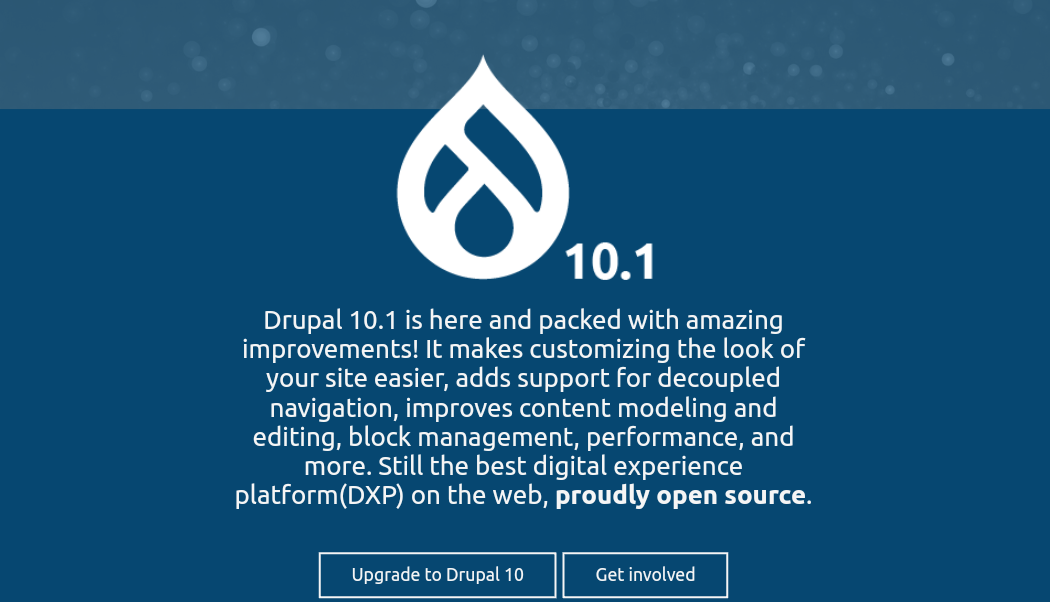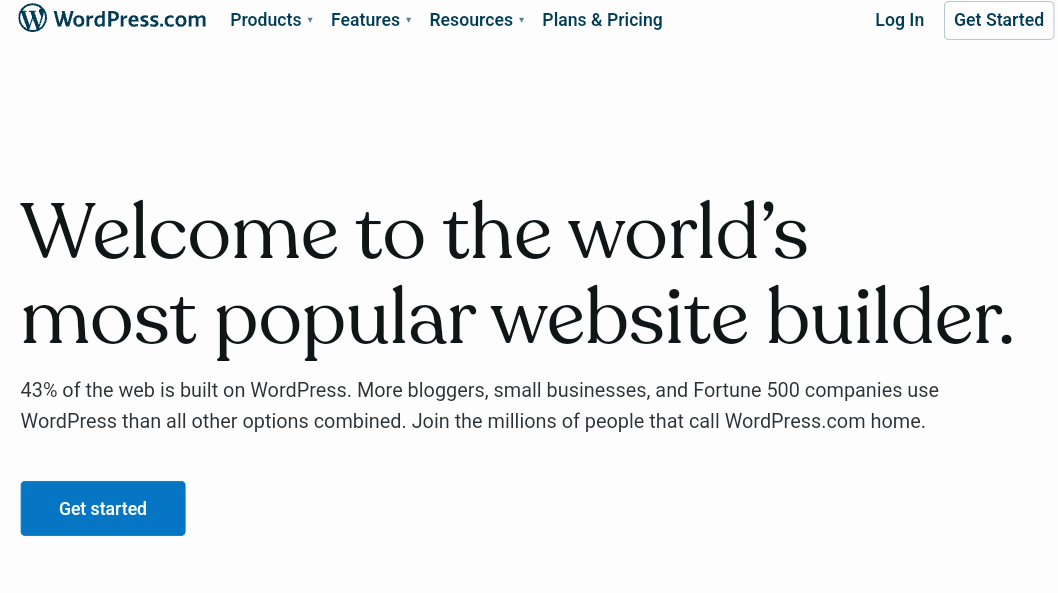Nowadays, building a professional website has become an easy task for anyone
thanks to modern
website builder platforms. Just like kids assemble building blocks to create
fun designs, you can easily build your website using these platforms , The
concept behind these
platforms is to develop user-friendly systems that allow users to drag and drop
pre-designed elements, arranging and customizing them according to their
preferences.
Top Platforms for Building Websites and E-commerce Stores for Your Business
These platforms provide a range of choices, enabling you to select the most
suitable template for your website and integrate it with robust hosting and
domain services. Moreover, you can utilize plugins to incorporate additional
elements or features as required. Should you need something tailored to your
specific requirements, you have the option to engage a programmer to
materialize your vision , In the following lines, we will share with you the
best website builder platforms and how they work, so you can choose the one
that best meets your needs.
Best Website Builder Platforms:
| 1. WordPress |
| 2. Wix |
| 3. Shopify |
| 4. WooCommerce |
| 5. Squarespace |
| 6. Drupal |
A website building platform is a system that allows people to create and
customize websites without the need for programming knowledge. Users can
easily change the website's appearance, add content, and create pages, as some
of these platforms offer ready-to-use components that can be easily dragged
and dropped into the site. Some content management systems allow storing all
website data, including images, plugins, and texts, on their own servers,
while other types of platforms require integration with external hosting
services.
 |
| Best Website Builder Platforms |
When choosing a platform for building a website, there are some important
criteria that should be present in the system. The platform should be
user-friendly, providing an intuitive interface for easy content modification.
Additionally, it should offer good technical support for users and continuous
updates to enhance performance and introduce new features. These criteria help
in selecting the best platform that meets the user's needs and enables them to
build a successful and visually appealing website with ease. When searching
for a platform to create a website, there are several points to consider to
choose the best one for you.
Criteria to meet when choosing your website building platform
1. Popularity: Choose a well-known and popular platform where you can find
solutions to problems and ask questions on YouTube or forums.
2. Technical Support: Check the quality of customer support for the company,
where their response should be quick and helpful.
3. Scalability: Examine the platform's potential for expansion as your website
grows, both in terms of management and handling high traffic.
4. Security: Ensure that the platform prioritizes security and continuously
develops protection methods.
5. SEO Support: Select a platform that offers advanced techniques to improve
search engine rankings and help increase visibility in search results.
6. Payment Gateways: If you plan on e-commerce, ensure that the platform
supports convenient payment methods for customers.
7. Customizability: Opt for an open-source platform so you can customize and
develop it according to your needs.
8. Mailing List Support: Confirm that the platform allows integration with
mailing list tools and easy incorporation into the website.
Top Website Builders
The WordPress platform is the most comprehensive and integrated among all content management systems. It boasts a user-friendly interface suitable for beginners and inspiring for experienced web developers. Being an open-source platform allows skilled developers to contribute to its improvement by creating distinctive templates or adding high-level new features.
WordPress comes equipped with robust tools like Rank Math, which streamline SEO efforts and support search engine optimization endeavors. These tools ensure that the site's code is easily crawlable by search engines and enhance image SEO, among other functionalities. Essentially, these plugins speak the search engine's language and empower users to make straightforward modifications to their website's code. This not only saves time and effort but also contributes to the creation of outstanding content and the enhancement of overall website performance.
Moreover,
WordPress boasts an exceptional content writing editor. Its flexibility and user-friendly interface make content creation a breeze. In contrast, some other platforms may lack a powerful text editor, limiting your creativity when generating content. Consequently, WordPress furnishes you with the essential tools to effortlessly and effectively craft a creative and captivating website.
Shopify is a well-known e-commerce platform that offers various types of services. It provides everything you need in one platform. The platform includes 9 free templates, while the rest of the templates require payment. Although the platform may not be as user-friendly, it is highly professional.
Shopify is particularly suitable for those working in marketing and
e-commerce, who want to target their visitors through paid advertising
campaigns. The SEO might be somewhat modest, but it works well for small
investments. Additionally, it supports popular payment gateways.
Wix platform is one of the easiest e-commerce platforms to work with. You can create a simple website on its subdomain for free, which is a good opportunity to test its speed and user-friendliness. However, if you're looking for a more advanced and professional level, such as connecting a custom domain name or utilizing available tools, you'll need to subscribe to a plan that starts from $4 and above.
Wix excels in providing a wide range of pre-designed templates that you can effortlessly and swiftly utilize. It empowers you to tailor your website to your specific requirements without the necessity of delving into programming or coding.
Nevertheless, should you desire to make code modifications, Wix does grant access to certain HTML, CSS, and JavaScript codes, although not the complete flexibility offered by platforms such as WordPress or Drupal , In summary, if you're a novice seeking to swiftly create a straightforward and ready-made website, Wix offers an ideal solution. Conversely, if you possess programming expertise and require intricate adjustments, you may need to explore more advanced platforms.
One of the most powerful e-commerce platforms that cannot be ignored when talking about online selling is Woocommerce. This platform is nothing but an add-on that can be installed on the WordPress platform to create an advanced online store.
Woocommerce empowers you to elegantly present and manage your products, including digital goods. Its user-friendly control panel offers streamlined administration, enabling inventory management, customer data analysis, integration with diverse payment gateways, and more.
Operating seamlessly alongside WordPress, Woocommerce leverages the flexibility of two open-source components. This allows you to personalize your store with templates that match your style and choose from a variety of Woocommerce plugins to optimize its performance. Additionally, Woocommerce collaborates harmoniously with WordPress for top-notch search engine optimization, leveraging the latest technologies and tools to yield exceptional results.
While this article doesn't cover all of Woocommerce's features, it has highlighted some of its notable advantages. Undoubtedly, Woocommerce stands as a platform worth considering and harnessing to build a successful and sophisticated online store.
We're referring to a system known as "Drupal," which, much like WordPress, is completely open-source. However, it's renowned for its advanced content management capabilities, especially well-suited for large and intricate websites. Drupal prioritizes top-tier security, making it the preferred choice for seasoned developers.

Despite its robust performance, Drupal's popularity does not compare to its
competitor, WordPress. As a result, many creative websites prefer to use
WordPress. However, Drupal still has its own audience who seeks powerful
performance and high security.
Squarespace is one of the oldest platforms specialized in creating e-commerce stores. It is one of the easiest content management systems to work with, allowing you to easily customize the store's appearance using the drag-and-drop feature. Prices start at $16 per month and above, and you can get a 14-day free trial.
One advantage of Squarespace lies in its inability to modify the template code, as it operates as a closed-source platform. This is not a drawback but rather a deliberate feature of the platform, designed to enhance data protection and mitigate potential security vulnerabilities.
It's essential to recognize that website creation isn't solely reliant on third-party platforms. Many websites employ custom systems, such as single-page HTML designs, which demand less extensive effort. Certain websites, like Amazon, Facebook, LinkedIn, and others, have specific requirements, prompting them to rely on proprietary systems. These websites leverage custom management systems to cater to their unique needs while retaining full control over their content.
This article explores the best platforms for building websites and online stores for your business, all without the necessity for programming skills ,
SEO is the most important factor in publishing your website or online store via search engines, and you must know it well.









